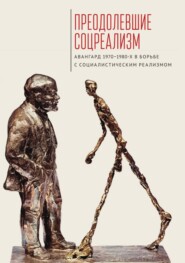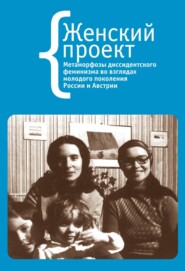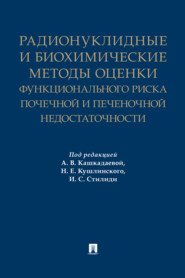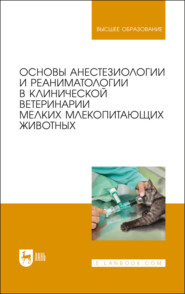По всем вопросам обращайтесь на: info@litportal.ru
(©) 2003-2024.
✖
The German Classics of the Nineteenth and Twentieth Centuries, Volume 08
Настройки чтения
Размер шрифта
Высота строк
Поля
"I did not know who he was—and here's his money still."
"I've nothing to do with that. Now, say frankly and honestly, you tiresome child, did I persuade you to be a goose-keeper? If you don't give it up this very day, I'm no guardian of yours. I won't have such things said of me!"
"I'll let everybody know that it was not your fault—but give it up is something I can't do. I must stick to it, at any rate for the rest of the summer—I must finish what I have begun."
"You're a crabbed creature," said the farmer; and he walked out of the room. But his wife, who was lying ill in bed, called out:
"You're quite right—stay just as you are. I prophesy that it will go well with you. A hundred years from now they will be saying in this village of one who has done well: 'He has the fortune of Brosi's Severin and of Josenhans' Amrei.' Your dry bread will fall into the honey-pot yet."
Farmer Rodel's sick wife was looked upon as crazy; and, as if frightened by a specter, Amrei hurried away without a word of reply.
Amrei told Black Marianne that a wonder had happened to her; Farmer Landfried, whose wife she so often thought about, had spoken to her and had taken her part in a talk with Farmer Rodel, and had given her something. She then displayed the piece of money, and Marianne called out, laughing:
"Yes, I might have guessed myself that it was Farmer Landfried. That's just like him—to give a poor child a bad groschen!"
"Why is it bad?" asked Amrei; and the tears came into her eyes.
"Why, that's a bird groschen—they're not worth full value—they're worth only a kreutzer and a half."
"Then he intended to give me only a kreutzer and a half," said Amrei decidedly.
And here for the first time an inward contrast showed itself between Amrei and Black Marianne. The latter almost rejoiced at every bad thing she heard about people, whereas Amrei put a good construction on everything. She was always happy, and no matter how frequently in her solitude she burst into tears, she never expected anything, and hence everything that she received was a surprise to her, and she was all the more thankful for it.
[Amrei hoped that her meeting with Farmer Landfried would result in his coming to take her to live with him, but she hoped in vain, for she watched the geese all summer long, and did not see or hear of him again.]
CHAPTER VI
THE WOMAN WHO BAKED HER OWN BREAD
A woman who leads a solitary, isolated life and bakes bread for herself quite alone, is called an "Eigenbrötlerin" (a woman who bakes her own bread), and such a woman, as a rule, has all kinds of peculiarities. No one had more right or more inclination to be an "Eigenbrötlerin" than did Black Marianne, although she never had anything to bake; for oatmeal and potatoes and potatoes and oatmeal were the only things she ever ate. She always lived by herself, and did not like to associate with other people. Only along toward autumn did she become restless and impatient; about that time of the year she would talk to herself a great deal, and would often accost people of her own accord, especially strangers who happened to be passing through the village. For she was anxious to find out whether the masons from this or that place had yet returned home for the winter, and whether they had brought news of her John. While she was once more boiling and washing the linen she had been bleaching all summer long, for which purpose she remained up all night, she would always be muttering to herself. No one could understand exactly what she said, but the burden of it was intelligible, for it was always: "That is for me, and that is for thee." She was in the habit of saying twelve Paternosters daily for her John, but on this particular washing-night they became innumerable. When the first snow fell she was always especially cheerful; for then there could be no more outdoor work, and then he would be most likely to come home. At these times she would often talk to a white hen which she kept in a coop, telling it that it would have to be killed when John came. She had repeated these proceedings for many years, and people never ceased telling her that she was foolish to be thus continually thinking of the return of her John.
This autumn it would be eighteen years since John had gone away, and every year John Michael Winkler was reported in the paper as missing, which would be done until his fiftieth year—he was now in his thirty-sixth. The story circulated in the village that John had gone among the gipsies. Once, indeed, his mother had mistaken a young gipsy for him; he was a man who bore a striking resemblance to her missing son, in that he was small of stature and had the same dark complexion; and he had seemed rather pleased at being taken for John. But the mother had put him to the proof, for she still had John's hymn-book and his confirmation verse; and, inasmuch as the stranger did not know this verse and could not tell who were his sponsors, or what had happened to him on the day when Brosi's Severin arrived with his English wife, and later on when the new well was dug at the town-hall—inasmuch as he did not satisfy these and other proofs, he could not be the right man. And yet Marianne used to give the gipsy a lodging whenever he came to the village, and the children in the streets used to cry "John!" after him.
John was advertised as being liable to military duty and as a deserter; and although his mother declared that he would have slipped through under the measuring-stick as "too short," she knew that he would not escape punishment if he returned, and inferred that this was the reason why he did not return. And it was very strange to hear her praying, almost in the same breath, for the welfare of her son and the death of the reigning prince; for she had been told that when the sovereign died, his successor would proclaim a general amnesty for all past offenses.
Every year Marianne used to ask the schoolmaster to give her the page in the newspaper in which her John was advertised for, and she always put it with his hymn-book. But this year it was a good thing that Marianne could not read, so that the schoolmaster could send her another page in place of the one she wanted. For a strange rumor was going through the whole village; whenever two people stood together talking, they would be saying:
"Black Marianne must not be told anything about it. It would kill her—it would drive her crazy."
For a report, coming from the Ambassador in Paris, had passed through a number of higher and lower officers, until it reached the Village Council; it stated that, according to a communication received from Algiers, John Winkler of Haldenbrunn had perished in that colony during an outpost skirmish. There was much talk in the village of the singular fact that so many in high departments should have concerned themselves so much about the dead John. But this stream of well-confirmed information was arrested before it had reached the end of its course.
At a meeting of the Village, Council it was determined that nothing at all should be said to Black Marianne about it. It would be wrong, they said, to embitter the last few years of her life by taking her one comfort away from her.
But instead of keeping the report secret, the first thing the members of the Council did was to talk of it in their homes, and it was not long before the whole village knew about it, excepting only Black Marianne. Every one, afraid of betraying the secret to her, looked at her with strange glances; no one addressed her, and even her greetings were scarcely returned. It was only Marianne's peculiar disposition that prevented her from noticing this. And indeed, if any one did speak to her and was drawn on to say anything about John's death, it was done in the conjectural and soothing way to which she had been accustomed for years; and Marianne did not believe it now any more than she had formerly, because nobody ever said anything definite about the report of his decease.
It would have been better if Amrei had known nothing about it, but there was a strange, seductive charm in getting as close as possible to a subject that was forbidden. Accordingly every one spoke to Amrei of the mournful event, warned her not to tell Black Marianne anything about it, and asked if the mother had no presentiments or dreams of her son's death—if his spirit did not haunt the house. After she heard of it Amrei was always trembling and quaking in secret; for she alone was always near Black Marianne, and it was terrible to know something which she was obliged to conceal from her. Even the people in whose house Black Marianne had rented a small room could no longer bear to have her near them, and they showed their sympathy by giving her notice to quit.
But how strangely things are associated in this life! As a result of this very thing Amrei experienced joy as well as grief—for it opened up her parents' home to her again. Black Marianne went to live there, and Amrei, who at first trembled as she went back and forth in the house, carrying water or making a fire, always thinking that now her father and mother must come, afterward began gradually to feel quite at home in it. She sat spinning day and night, until she had earned enough money to buy back her parents' cuckoo-clock from Coaly Mathew. Now she had at least one household article of her own! But the cuckoo had fared badly among strangers; it had lost half of its voice, and the other half seemed to stick in its throat—it could only cry "cook"—and as often as it did that, Amrei would involuntarily add the missing "oo."
* * * * *
Black Marianne could not bear to hear the clock cuckoo and fixed the pendulum so that it would not work, saying that she always had the time in her head. And it was indeed wonderful how true this was—at any minute she could tell what time it was, although it was of very little consequence to her. In fact, this waiting, expectant woman possessed a remarkable degree of alertness, for as she was always listening to hear her son coming, she was naturally wide-awake all the time. And, although she never visited anybody in the village, and spoke to nobody, she knew everybody, and all about the most secret things that went on in the place. She could infer a great deal from the manner in which people met one another, and from words she overheard here and there. And because this seemed very wonderful, she was feared and avoided. She often used to describe herself, according to a local expression, as an "old-experienced" woman, and yet she was exceedingly active. Every day, year in and year out, she ate a few juniper berries, and people said that was the reason why she was so vigorous and showed her sixty-six years so little. The fact that the two sixes stood together caused her, according to an old country saying[3 - This old country saying is founded on the similarity in sound between sechse (sixes) and hexe (witch).] (which, however, was not universally believed in) to be regarded as a witch. It was said that she sometimes milked her black goat for hours at a time, and that this goat gave an astonishing quantity of milk, but that in milking this goat she was in reality drawing the milk out of the udders of the cows belonging to persons she hated, and that she had an especial grudge against Farmer Rodel's cattle. Moreover, Marianne's successful poultry-keeping was also looked upon as witchcraft; for where did she get the food, and how was it that she always had chickens and eggs to sell? It is true that in the summer she was often seen collecting cock-chafers, grasshoppers, and all kinds of worms, and on moonless nights she was seen gliding like a will-o'-the-wisp among the graves in the churchyard, where she would be carrying a burning torch and collecting the large black worms that crept out, all the time muttering to herself. It was even said that in the quiet winter nights she held wonderful conversations with her goat and with her fowls, which she housed in her room during the winter. The entire wild army of tales of witchcraft and sorcery, banished by school education, came back and attached itself to Black Marianne.
Amrei sometimes felt afraid in the long, silent winter nights, when she sat spinning by Black Marianne, and nothing was heard but an occasional sleepy clucking from the fowls, or a dreamy bleat from the goat. And it seemed truly magical how fast Marianne spun! She even said once:
"I think my John is helping me to spin." And then again she complained that this winter, for the first time, she had not thought wholly and solely of her John. She took her self to task for it and called herself a bad mother, and complained that it seemed all the time as if the features of her John were slowly vanishing before her—as if she were forgetting what he had done at such and such a time, how he had laughed, sung, and wept, and how he had climbed the tree and jumped into the ditch.
* * * * *
But however cheerfully and brightly Marianne might begin to speak, she always ended by relapsing into gloomy complaint and mourning; and she who professed to like to be alone and to think of nothing and to love nothing, only lived to think about her son and to love him. Consequently Amrei made up her mind to release herself from this uncanny position of being alone with Black Marianne; she demanded that Damie should be taken into the house. At first Marianne opposed it vehemently, but when Amrei threatened to leave the house herself, and then coaxed her in such a childlike way and tried so hard to do whatever would best please her, the old woman at last consented.
Damie, who had learned from Crappy Zachy to knit wool, now sat beneath the parental roof again; and at night, when the brother and sister were asleep in the garret, each one of them would wake the other when they heard Black Marianne down stairs, running to and fro and muttering to herself. But Damie's transmigration to Black Marianne's was the cause of new trouble. Damie was exceedingly discontented at having been compelled to learn a miserable trade that was fit only for a cripple. He wanted to be a mason, and although Amrei was very much opposed to it, for she predicted that he would not keep at it, Black Marianne supported him in it. She would have liked to make all the young lads masons, and then to have sent them out on their travels that they might bring back news of her John.
Black Marianne seldom went to church, but she always liked to have anybody else borrow her hymn-book and take it to church—it seemed to give her a kind of pleasure to have it there. She was especially pleased when any strange workman, who happened to be employed in the village, borrowed the hymn-book which John had left behind him for that purpose; for it seemed to her as if John himself were praying in his native church, when the words were spoken and sung out of his book. And now Damie was obliged to go to church twice every Sunday with John's hymn-book.
While Marianne did not go to church herself, she was always to be seen at every solemn ceremony in the village or in any of the surrounding villages. There was never a funeral which Marianne did not attend as one of the mourners; and at the funeral sermon, and the blessing spoken over the grave, even of a little child, she always wept so violently that one would have thought she was the nearest relative. On the way home, however, she was always especially cheerful, for this weeping seemed to be a kind of relief to her; all the year round she had to suppress so much secret sorrow, that she felt thankful for an opportunity to give vent to her feelings.
Could people be blamed if they shunned her as an uncanny person, especially as they were keeping a secret from her? The habit of avoiding Black Marianne was partly extended to Amrei herself; in several houses where the girl called to offer help or sympathy she was made to see distinctly that her presence was not desired, especially as she herself was beginning to show certain eccentricities which astonished the whole village; for example, except on the coldest winter days she used to go barefoot, and people said that she must know some secret method to prevent herself from catching cold and dying.
Only in the house of Farmer Rodel were they glad to have her, for the farmer was her guardian. His wife, who had always taken Amrei's part and who had one day promised to take her into her service when she was older, was prevented from carrying out this plan. She herself was taken by another—Death. The heaviness of life is generally felt in later years, when one friend after another has been called away, and only a name and a memory remains. But it was Amrei's lot to experience this in her youth; and it was she and Black Marianne who wept more bitterly than any of the others at the funeral of Farmer Rodel's wife.
Farmer Rodel was always complaining about how hard it was that he should have to give up his property so soon, although not one of his three children was yet married. But hardly a year had passed, and Damie had not yet worked a full year in the quarry, when the celebration of a double wedding was announced in the village; for Farmer Rodel's eldest daughter and his only son were to be married on the same day. On this day Farmer Rodel was to give over his property to his son, and at this wedding it was fated that Amrei should acquire a new name and be introduced into a new life.
In the space before the large dancing-floor the children were assembled, and while the grown-up people were dancing and enjoying themselves within, the children were imitating them outside. But, strange to say, no boy and no girl would dance with Amrei. No one knew who said it first, but a voice was heard to call out:
"No one will dance with you—you're Little Barefoot!" and "Barefoot! Barefoot! Barefoot!" was echoed on all sides. Amrei was ready to weep; but here again she quickly made use of the power which enabled her to ignore insult and injury. Suppressing her tears, she seized her apron by the two ends and danced around by herself so gracefully and prettily, that all the children stopped to look at her. And presently the grown-up people were nodding to one another, and a circle of men and women was formed around Amrei. Farmer Rodel, in particular, who on this day was eating and drinking with double relish, snapped his fingers and whistled the waltz the musicians were playing, while Amrei went on dancing and seemed to know no weariness. When at last the music ceased, Farmer Rodel took Amrei by the hand and said:
"You clever girl, who taught you to do that so well?"
"Nobody."
"Why don't you dance with any one?"
"It is better to dance alone—then one does not have to wait for anybody, and has one's partner always at hand."
"Have you had anything from the wedding yet?" asked Farmer Rodel, with a complacent smile.
"No."
"Then come in and eat," said the proud farmer; and he led the poor girl into the house and sat her down at the wedding table, at which feasting was going on all day long. Amrei did not eat much. Farmer Rodel, for a jest, wanted to make the child tipsy, but Amrei said bravely:
"If I drink more, I shall have to be led and shall not be able to walk alone; and Marianne says 'alone' is the best conveyance, for then the horses are always harnessed."
All were astonished at the child's wisdom.
Young Farmer Rodel came in with his wife and asked the child, to tease her:
"Have you brought us a wedding present? For if one eats so, one ought to bring a wedding present."
"I've nothing to do with that. Now, say frankly and honestly, you tiresome child, did I persuade you to be a goose-keeper? If you don't give it up this very day, I'm no guardian of yours. I won't have such things said of me!"
"I'll let everybody know that it was not your fault—but give it up is something I can't do. I must stick to it, at any rate for the rest of the summer—I must finish what I have begun."
"You're a crabbed creature," said the farmer; and he walked out of the room. But his wife, who was lying ill in bed, called out:
"You're quite right—stay just as you are. I prophesy that it will go well with you. A hundred years from now they will be saying in this village of one who has done well: 'He has the fortune of Brosi's Severin and of Josenhans' Amrei.' Your dry bread will fall into the honey-pot yet."
Farmer Rodel's sick wife was looked upon as crazy; and, as if frightened by a specter, Amrei hurried away without a word of reply.
Amrei told Black Marianne that a wonder had happened to her; Farmer Landfried, whose wife she so often thought about, had spoken to her and had taken her part in a talk with Farmer Rodel, and had given her something. She then displayed the piece of money, and Marianne called out, laughing:
"Yes, I might have guessed myself that it was Farmer Landfried. That's just like him—to give a poor child a bad groschen!"
"Why is it bad?" asked Amrei; and the tears came into her eyes.
"Why, that's a bird groschen—they're not worth full value—they're worth only a kreutzer and a half."
"Then he intended to give me only a kreutzer and a half," said Amrei decidedly.
And here for the first time an inward contrast showed itself between Amrei and Black Marianne. The latter almost rejoiced at every bad thing she heard about people, whereas Amrei put a good construction on everything. She was always happy, and no matter how frequently in her solitude she burst into tears, she never expected anything, and hence everything that she received was a surprise to her, and she was all the more thankful for it.
[Amrei hoped that her meeting with Farmer Landfried would result in his coming to take her to live with him, but she hoped in vain, for she watched the geese all summer long, and did not see or hear of him again.]
CHAPTER VI
THE WOMAN WHO BAKED HER OWN BREAD
A woman who leads a solitary, isolated life and bakes bread for herself quite alone, is called an "Eigenbrötlerin" (a woman who bakes her own bread), and such a woman, as a rule, has all kinds of peculiarities. No one had more right or more inclination to be an "Eigenbrötlerin" than did Black Marianne, although she never had anything to bake; for oatmeal and potatoes and potatoes and oatmeal were the only things she ever ate. She always lived by herself, and did not like to associate with other people. Only along toward autumn did she become restless and impatient; about that time of the year she would talk to herself a great deal, and would often accost people of her own accord, especially strangers who happened to be passing through the village. For she was anxious to find out whether the masons from this or that place had yet returned home for the winter, and whether they had brought news of her John. While she was once more boiling and washing the linen she had been bleaching all summer long, for which purpose she remained up all night, she would always be muttering to herself. No one could understand exactly what she said, but the burden of it was intelligible, for it was always: "That is for me, and that is for thee." She was in the habit of saying twelve Paternosters daily for her John, but on this particular washing-night they became innumerable. When the first snow fell she was always especially cheerful; for then there could be no more outdoor work, and then he would be most likely to come home. At these times she would often talk to a white hen which she kept in a coop, telling it that it would have to be killed when John came. She had repeated these proceedings for many years, and people never ceased telling her that she was foolish to be thus continually thinking of the return of her John.
This autumn it would be eighteen years since John had gone away, and every year John Michael Winkler was reported in the paper as missing, which would be done until his fiftieth year—he was now in his thirty-sixth. The story circulated in the village that John had gone among the gipsies. Once, indeed, his mother had mistaken a young gipsy for him; he was a man who bore a striking resemblance to her missing son, in that he was small of stature and had the same dark complexion; and he had seemed rather pleased at being taken for John. But the mother had put him to the proof, for she still had John's hymn-book and his confirmation verse; and, inasmuch as the stranger did not know this verse and could not tell who were his sponsors, or what had happened to him on the day when Brosi's Severin arrived with his English wife, and later on when the new well was dug at the town-hall—inasmuch as he did not satisfy these and other proofs, he could not be the right man. And yet Marianne used to give the gipsy a lodging whenever he came to the village, and the children in the streets used to cry "John!" after him.
John was advertised as being liable to military duty and as a deserter; and although his mother declared that he would have slipped through under the measuring-stick as "too short," she knew that he would not escape punishment if he returned, and inferred that this was the reason why he did not return. And it was very strange to hear her praying, almost in the same breath, for the welfare of her son and the death of the reigning prince; for she had been told that when the sovereign died, his successor would proclaim a general amnesty for all past offenses.
Every year Marianne used to ask the schoolmaster to give her the page in the newspaper in which her John was advertised for, and she always put it with his hymn-book. But this year it was a good thing that Marianne could not read, so that the schoolmaster could send her another page in place of the one she wanted. For a strange rumor was going through the whole village; whenever two people stood together talking, they would be saying:
"Black Marianne must not be told anything about it. It would kill her—it would drive her crazy."
For a report, coming from the Ambassador in Paris, had passed through a number of higher and lower officers, until it reached the Village Council; it stated that, according to a communication received from Algiers, John Winkler of Haldenbrunn had perished in that colony during an outpost skirmish. There was much talk in the village of the singular fact that so many in high departments should have concerned themselves so much about the dead John. But this stream of well-confirmed information was arrested before it had reached the end of its course.
At a meeting of the Village, Council it was determined that nothing at all should be said to Black Marianne about it. It would be wrong, they said, to embitter the last few years of her life by taking her one comfort away from her.
But instead of keeping the report secret, the first thing the members of the Council did was to talk of it in their homes, and it was not long before the whole village knew about it, excepting only Black Marianne. Every one, afraid of betraying the secret to her, looked at her with strange glances; no one addressed her, and even her greetings were scarcely returned. It was only Marianne's peculiar disposition that prevented her from noticing this. And indeed, if any one did speak to her and was drawn on to say anything about John's death, it was done in the conjectural and soothing way to which she had been accustomed for years; and Marianne did not believe it now any more than she had formerly, because nobody ever said anything definite about the report of his decease.
It would have been better if Amrei had known nothing about it, but there was a strange, seductive charm in getting as close as possible to a subject that was forbidden. Accordingly every one spoke to Amrei of the mournful event, warned her not to tell Black Marianne anything about it, and asked if the mother had no presentiments or dreams of her son's death—if his spirit did not haunt the house. After she heard of it Amrei was always trembling and quaking in secret; for she alone was always near Black Marianne, and it was terrible to know something which she was obliged to conceal from her. Even the people in whose house Black Marianne had rented a small room could no longer bear to have her near them, and they showed their sympathy by giving her notice to quit.
But how strangely things are associated in this life! As a result of this very thing Amrei experienced joy as well as grief—for it opened up her parents' home to her again. Black Marianne went to live there, and Amrei, who at first trembled as she went back and forth in the house, carrying water or making a fire, always thinking that now her father and mother must come, afterward began gradually to feel quite at home in it. She sat spinning day and night, until she had earned enough money to buy back her parents' cuckoo-clock from Coaly Mathew. Now she had at least one household article of her own! But the cuckoo had fared badly among strangers; it had lost half of its voice, and the other half seemed to stick in its throat—it could only cry "cook"—and as often as it did that, Amrei would involuntarily add the missing "oo."
* * * * *
Black Marianne could not bear to hear the clock cuckoo and fixed the pendulum so that it would not work, saying that she always had the time in her head. And it was indeed wonderful how true this was—at any minute she could tell what time it was, although it was of very little consequence to her. In fact, this waiting, expectant woman possessed a remarkable degree of alertness, for as she was always listening to hear her son coming, she was naturally wide-awake all the time. And, although she never visited anybody in the village, and spoke to nobody, she knew everybody, and all about the most secret things that went on in the place. She could infer a great deal from the manner in which people met one another, and from words she overheard here and there. And because this seemed very wonderful, she was feared and avoided. She often used to describe herself, according to a local expression, as an "old-experienced" woman, and yet she was exceedingly active. Every day, year in and year out, she ate a few juniper berries, and people said that was the reason why she was so vigorous and showed her sixty-six years so little. The fact that the two sixes stood together caused her, according to an old country saying[3 - This old country saying is founded on the similarity in sound between sechse (sixes) and hexe (witch).] (which, however, was not universally believed in) to be regarded as a witch. It was said that she sometimes milked her black goat for hours at a time, and that this goat gave an astonishing quantity of milk, but that in milking this goat she was in reality drawing the milk out of the udders of the cows belonging to persons she hated, and that she had an especial grudge against Farmer Rodel's cattle. Moreover, Marianne's successful poultry-keeping was also looked upon as witchcraft; for where did she get the food, and how was it that she always had chickens and eggs to sell? It is true that in the summer she was often seen collecting cock-chafers, grasshoppers, and all kinds of worms, and on moonless nights she was seen gliding like a will-o'-the-wisp among the graves in the churchyard, where she would be carrying a burning torch and collecting the large black worms that crept out, all the time muttering to herself. It was even said that in the quiet winter nights she held wonderful conversations with her goat and with her fowls, which she housed in her room during the winter. The entire wild army of tales of witchcraft and sorcery, banished by school education, came back and attached itself to Black Marianne.
Amrei sometimes felt afraid in the long, silent winter nights, when she sat spinning by Black Marianne, and nothing was heard but an occasional sleepy clucking from the fowls, or a dreamy bleat from the goat. And it seemed truly magical how fast Marianne spun! She even said once:
"I think my John is helping me to spin." And then again she complained that this winter, for the first time, she had not thought wholly and solely of her John. She took her self to task for it and called herself a bad mother, and complained that it seemed all the time as if the features of her John were slowly vanishing before her—as if she were forgetting what he had done at such and such a time, how he had laughed, sung, and wept, and how he had climbed the tree and jumped into the ditch.
* * * * *
But however cheerfully and brightly Marianne might begin to speak, she always ended by relapsing into gloomy complaint and mourning; and she who professed to like to be alone and to think of nothing and to love nothing, only lived to think about her son and to love him. Consequently Amrei made up her mind to release herself from this uncanny position of being alone with Black Marianne; she demanded that Damie should be taken into the house. At first Marianne opposed it vehemently, but when Amrei threatened to leave the house herself, and then coaxed her in such a childlike way and tried so hard to do whatever would best please her, the old woman at last consented.
Damie, who had learned from Crappy Zachy to knit wool, now sat beneath the parental roof again; and at night, when the brother and sister were asleep in the garret, each one of them would wake the other when they heard Black Marianne down stairs, running to and fro and muttering to herself. But Damie's transmigration to Black Marianne's was the cause of new trouble. Damie was exceedingly discontented at having been compelled to learn a miserable trade that was fit only for a cripple. He wanted to be a mason, and although Amrei was very much opposed to it, for she predicted that he would not keep at it, Black Marianne supported him in it. She would have liked to make all the young lads masons, and then to have sent them out on their travels that they might bring back news of her John.
Black Marianne seldom went to church, but she always liked to have anybody else borrow her hymn-book and take it to church—it seemed to give her a kind of pleasure to have it there. She was especially pleased when any strange workman, who happened to be employed in the village, borrowed the hymn-book which John had left behind him for that purpose; for it seemed to her as if John himself were praying in his native church, when the words were spoken and sung out of his book. And now Damie was obliged to go to church twice every Sunday with John's hymn-book.
While Marianne did not go to church herself, she was always to be seen at every solemn ceremony in the village or in any of the surrounding villages. There was never a funeral which Marianne did not attend as one of the mourners; and at the funeral sermon, and the blessing spoken over the grave, even of a little child, she always wept so violently that one would have thought she was the nearest relative. On the way home, however, she was always especially cheerful, for this weeping seemed to be a kind of relief to her; all the year round she had to suppress so much secret sorrow, that she felt thankful for an opportunity to give vent to her feelings.
Could people be blamed if they shunned her as an uncanny person, especially as they were keeping a secret from her? The habit of avoiding Black Marianne was partly extended to Amrei herself; in several houses where the girl called to offer help or sympathy she was made to see distinctly that her presence was not desired, especially as she herself was beginning to show certain eccentricities which astonished the whole village; for example, except on the coldest winter days she used to go barefoot, and people said that she must know some secret method to prevent herself from catching cold and dying.
Only in the house of Farmer Rodel were they glad to have her, for the farmer was her guardian. His wife, who had always taken Amrei's part and who had one day promised to take her into her service when she was older, was prevented from carrying out this plan. She herself was taken by another—Death. The heaviness of life is generally felt in later years, when one friend after another has been called away, and only a name and a memory remains. But it was Amrei's lot to experience this in her youth; and it was she and Black Marianne who wept more bitterly than any of the others at the funeral of Farmer Rodel's wife.
Farmer Rodel was always complaining about how hard it was that he should have to give up his property so soon, although not one of his three children was yet married. But hardly a year had passed, and Damie had not yet worked a full year in the quarry, when the celebration of a double wedding was announced in the village; for Farmer Rodel's eldest daughter and his only son were to be married on the same day. On this day Farmer Rodel was to give over his property to his son, and at this wedding it was fated that Amrei should acquire a new name and be introduced into a new life.
In the space before the large dancing-floor the children were assembled, and while the grown-up people were dancing and enjoying themselves within, the children were imitating them outside. But, strange to say, no boy and no girl would dance with Amrei. No one knew who said it first, but a voice was heard to call out:
"No one will dance with you—you're Little Barefoot!" and "Barefoot! Barefoot! Barefoot!" was echoed on all sides. Amrei was ready to weep; but here again she quickly made use of the power which enabled her to ignore insult and injury. Suppressing her tears, she seized her apron by the two ends and danced around by herself so gracefully and prettily, that all the children stopped to look at her. And presently the grown-up people were nodding to one another, and a circle of men and women was formed around Amrei. Farmer Rodel, in particular, who on this day was eating and drinking with double relish, snapped his fingers and whistled the waltz the musicians were playing, while Amrei went on dancing and seemed to know no weariness. When at last the music ceased, Farmer Rodel took Amrei by the hand and said:
"You clever girl, who taught you to do that so well?"
"Nobody."
"Why don't you dance with any one?"
"It is better to dance alone—then one does not have to wait for anybody, and has one's partner always at hand."
"Have you had anything from the wedding yet?" asked Farmer Rodel, with a complacent smile.
"No."
"Then come in and eat," said the proud farmer; and he led the poor girl into the house and sat her down at the wedding table, at which feasting was going on all day long. Amrei did not eat much. Farmer Rodel, for a jest, wanted to make the child tipsy, but Amrei said bravely:
"If I drink more, I shall have to be led and shall not be able to walk alone; and Marianne says 'alone' is the best conveyance, for then the horses are always harnessed."
All were astonished at the child's wisdom.
Young Farmer Rodel came in with his wife and asked the child, to tease her:
"Have you brought us a wedding present? For if one eats so, one ought to bring a wedding present."

















